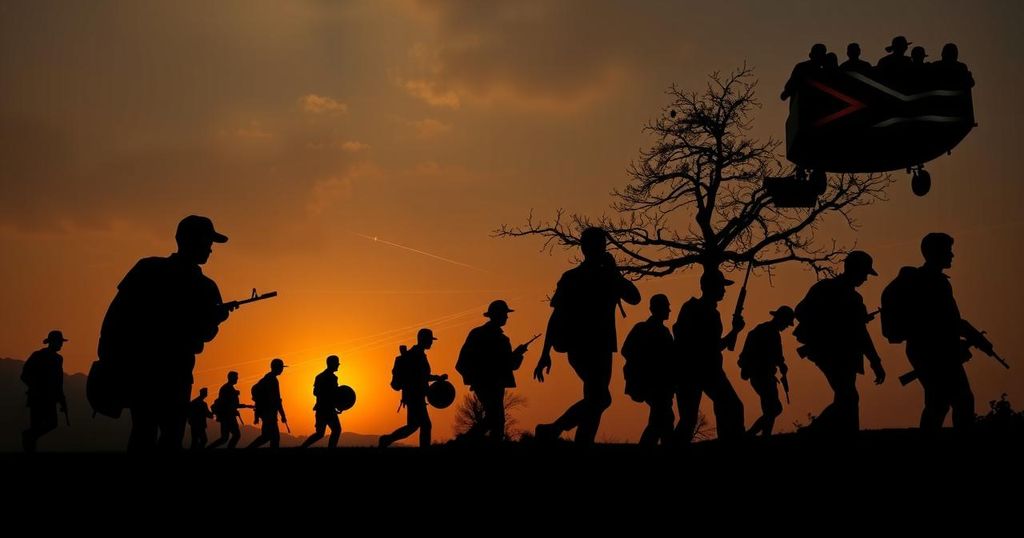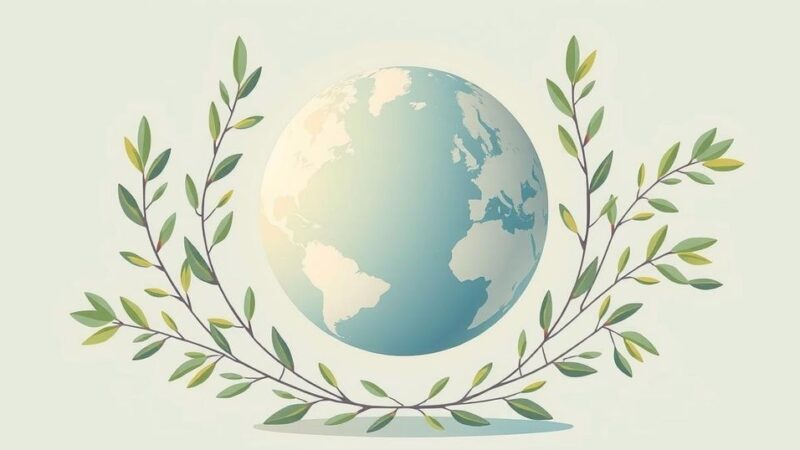The remains of 42 South African freedom fighters who died in exile in Zimbabwe and Zambia were repatriated to South Africa in a ceremony attended by government officials and family members. This initiative aims to provide closure to the families and educate future generations about the anti-apartheid struggle. Deputy President Paul Mashatile and President Cyril Ramaphosa emphasized the importance of these efforts, with more repatriations planned from other countries.
In a poignant ceremony held on Wednesday, the remains of 42 South African freedom fighters, who lost their lives in exile during the anti-apartheid struggle, were returned to their homeland. These individuals had died while in hiding and fighting against the oppressive regime in Zimbabwe and Zambia, where they had sought safety and military training. The transfer of their remains took place at the Waterkloof Air Force Base in Pretoria, attended by family members and government officials, following their exhumation in the two countries. This initiative is a key component of a government program aimed at providing closure to the families of the deceased, many of whom were active members of underground organizations such as the African National Congress (ANC) and Pan Africanist Congress (PAC). Notable figures among the returned remains included Duma Nokwe, Florence Mophosho, and Basil February. Deputy President Paul Mashatile highlighted the significance of this repatriation during a recent commemoration event, stating that it is part of a national memory project designed to educate future generations about the sacrifices made in the struggle against apartheid. A formal homecoming ceremony, which will be presided over by President Cyril Ramaphosa, is scheduled for Friday, after which the remains will be entrusted to their families for reburial. The government also announced ongoing efforts to repatriate additional remains of South Africans from various countries including Lesotho, Ethiopia, and Angola, as a means of reconnecting families with their lost loved ones.
The repatriation of the remains of South African freedom fighters is an initiative stemming from the historical context of the anti-apartheid struggle, which involved numerous activists who were forced into exile to escape the repressive apartheid regime. Those who left South Africa sought support and military training in neighboring countries such as Zimbabwe and Zambia, where underground efforts to challenge the government were more robust. Many of these activists unfortunately died abroad, leading to a legacy that includes honoring their sacrifice and bringing their remains back home for proper burial. The government’s efforts in facilitating the return of these remains underscore the importance of remembering and commemorating the struggle for liberation in South Africa, particularly as the nation reflects on its past while shaping its future.
The repatriation of the remains of these 42 freedom fighters represents a significant step in honoring the legacy of those who sacrificed everything in the fight against apartheid. President Cyril Ramaphosa’s upcoming homecoming ceremony highlights the government’s commitment to recognizing and preserving the history of South Africa’s struggle for freedom. Furthermore, the efforts to repatriate additional remains from various countries signify a broader commitment to reconnect families with their history and acknowledge the sacrifices made in the pursuit of justice and equality.
Original Source: www.newsday.com






